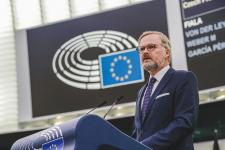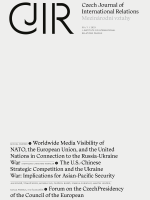The Czech Presidency: tackling the energy and climate crisis

The Czech presidency of the Council of the EU faced a challenging term, commencing just months after Russia invaded Ukraine. Its priorities were to maintain the unity of the European bloc against Moscow, manage the energy crisis, and adhere to the ambitious climate agenda. During its term, the Czech presidency significantly improved the EU՚s energy security by promoting energy solidarity, cooperation, and reaching key agreements on issues such as the windfall tax or reduction of gas demand. Although the climate policy remained in sight, the revisions of the Renewable Energy Directive and Energy Efficiency Directive not only lacked momentum and important commitments, such as an agreement on reducing energy demand, but also strong compulsory measures. Despite the Czech presidency’s prioritization of security of supply over ambitious climate goals, its overall successful performance in both areas has contributed to aligning energy and climate policies between Western and Eastern Europe in the long term.
DIIS Eksperter


